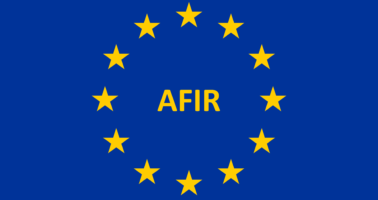Alternative Fuels Infrastructure Regulation. This initiative aims to ensure the availability and ease of use of a dense and widespread network of infrastructure for alternative fuels throughout the EU. All alternative fuel vehicle users (including ships and aircraft) should be able to move around the EU with ease, thanks to key infrastructures such as motorways, ports and airports.
This proposal is part of the set of interrelated political initiatives of the package "Fit for 55". These policy initiatives correspond to the actions needed in all sectors of the economy to complement national efforts to achieve the highest climate ambition by 2030. This initiative also acts in strong synergy with the proposal for a Regulation of the European Parliament and of the Council on the use of renewable and low-carbon fuels in maritime transport (initiative FuelEU Maritime), which establish obligations on the supply and demand of renewable and low-carbon fuels for transport
Increasing the deployment and use of low-carbon and renewable fuels must be accompanied by the creation of a comprehensive network of recharging and refueling infrastructures based on geographic equity to enable the widespread adoption of low- and zero-emission vehicles in all modes of transport.
Three keys to the AFI Regulation
1) The Commission wants LNG and onshore power supply facilities to be expanded in the main EU ports, which is why it is reviewing the Alternative Fuel Infrastructure Directive, which will now become a regulation.
2) This review will require EU countries to make adequate investments for fuel supply, and LNG to be available by 2025, as well as sufficient energy installations on land by 2030.
3) The intention of this Regulation is to facilitate compliance with the onshore energy provisions of the FUEL EU regulation for maritime transport.
In the case of maritime transport, this initiative meets the clear requirement of the European Green Deal to oblige docked vessels to use electricity on shore (OPS). It is fully complementary to the EU's Fuel maritime initiative, as it ensures the installation of a sufficient shore power supply in ports to provide electricity while passenger ships (including ro-ro passenger ships, passenger ships high speed and cruise ships) and container ships are docked and to meet the demand for decarbonized gases (i.e. bioGNL and synthetic gaseous fuels (e-gas).
In its Article 9 The Regulation establishes the objectives for the supply of electricity on land in the seaports that the member states must guarantee, no later than January 1, 2030:
- (a) The seaports of the basic TEN-T and the global TEN-T whose annual mean of container ship calls of more than 5,000 gross tons, in the previous three years, greater than 100, have sufficient electrical power on land to satisfy at least 90% of that demand;
- (b) The seaports of the basic TEN-T and the global TEN-T whose annual mean calls of ro-ro passenger ships and high-speed passenger ships of more than 5,000 gross tons, in the previous three years, over 40, have enough power on the ground to satisfy at least the 90% of that demand;
- (c) The maritime ports of the TEN-T and TEN-T whose annual average number of calls in the last three years by passenger ships other than ro-ro passenger ships and high-speed passenger craft of more than 5,000 gross tons, in the previous three years, over 25, they have enough power on the ground to satisfy at least the 90% of said demand.
In its Article 11, the Regulation establishes the objectives for the supply of LNG in seaports:
- Member States shall ensure that an adequate number of LNG refueling points are established in the TEN-T core seaports mentioned in paragraph 2, so that seagoing vessels can circulate throughout the TEN core network. -T before January 1, 2025. Member states will cooperate with neighboring member states when necessary to ensure adequate coverage of the TEN-T core network.
- The member states will designate in their national political frameworks the maritime ports of the TEN-T core that will provide access to the LNG refueling points mentioned in section 1, also taking into account the real needs and evolution of the market.
Before 1 January 2024, each Member State shall prepare and send to the Commission a draft of National Action Framework for the development of the market with regard to alternative fuels in the transport sector and the deployment of the corresponding infrastructure.
The Regulation approved in September 2023 is incorporated below:
The Evaluation of the Directive to replace:
And finally the Analysis of the Impact of the Regulation:

